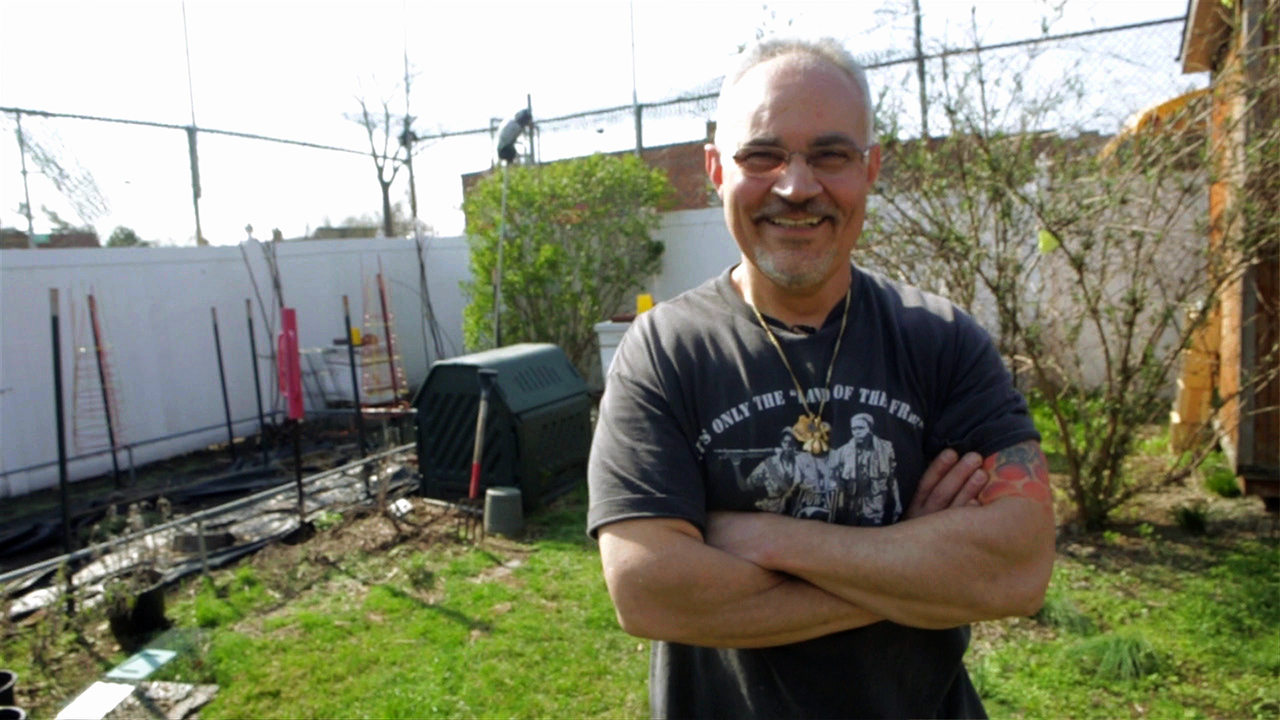Retired NYPD Detective Specialist Anthony Planakis is one of those guys who, when he’s interested in something, learns everything there is to know on the subject. He has a lot of interests: photography, organic food, HVAC installation and maintenance. But his passion, since 1977, has been bees. He’s kept bees for years, first in Connecticut and then in his backyard in Rego Park, Queens starting in 2010, the year beekeeping was legalized in New York City. He’s become an extraordinary expert on bees. After joining the force in 1994 as an HVAC mechanic, he quickly found a special niche for himself as the NYPD’s resident “bee guy.”
Every spring and summer, he would go on roughly 20 calls a year to remove swarms of bees from public property, earning himself the nickname “Tony Bees.” His exploits were covered by the New York Post, Curbed, even People. Then-Commissioner Ray Kelly gave him a “bee-mobile” to drive while on calls when he found out that Det. Planakis was using his personal vehicle. He became a sort of folk hero, an example of the NYPD doing something quirky and nice rather than corrupt and brutal.

The recognition he received for his work as Tony Bees, both from the press and Commissioner Kelly, indirectly led to him retiring from the force in 2014, just two years after his promotion to detective. After years of mistreatment by superior officers that intensified after being made detective, last summer he said, “I’m done,” and retired. The moment he knew he was done happened last July, when a lieutenant called him “useless” because he wasn’t available to chauffeur somebody from One Police Plaza around. He had to take his wife to a doctor’s appointment that day. That disrespectful comment, coming in front of other bosses, was the proverbial last straw. He called up the pension office the following week.
He claims that jealousy and resentment at the little-known Building Maintenance Section forced him out. Higher-ranking officers openly disrespected him. He recalls one incident where a lieutenant pulled him aside after a meeting and asked him, “How does it feel to be the most powerful person in this building?” To which Tony says he replied, “How does it feel to be an asshole?”
“It was pathetic,” Tony says. “That’s what it’s about to you, fuckin’ power?”

They accused him of profiting from selling honey and bees he captured, which seems weird, but organic honey can retail for almost $15 a pound and Tony harvests between 300 and 400 pounds a year. Tony vehemently denies these accusations, claiming they’re fueled entirely by jealousy. He prides himself on his integrity, so the accusations that he took improper advantage of his position are especially galling to him. He says whatever honey he collected he gave away, and he didn’t start selling it until after he retired. He maintains that he never sold any bees he captured.
The overtime he incurred while catching and transporting the bees was compensation enough for him. He would take swarms up to his hives in Connecticut, or occasionally give them to out-of-city beekeepers, since he was tasked with finding a safe home for bees he collected. He never exterminated them because “they’re not pests.” Even after he set up the hives in his backyard, he didn’t integrate wild bees with the ones he had purchased from a reputable bee dealer, because he didn’t want to jeopardize his investment by introducing bees that may be sick or compromised in some way. Since his primary duty with the NYPD was as an HVAC technician, his bee work was above-and-beyond the call of duty.

After his promotion to detective, his commanding officer put him on what he calls “punishment post,” answering phones at the Building Maintenance Section office and doing paperwork, including accounting. If he really saw the financial records he told me about off-the-record, that knowledge could be a much bigger contributing factor to why the captains and lieutenants he accuses of jealousy wouldn’t want someone with Det. Planakis’ professed integrity around (he says he never once resorted to violence while arresting someone during times he worked a beat).
He’s much happier retired, anyway. He has more time for his bees.
I could tell which house on the residential, nearly suburban block belonged to Tony Bees by the stickers on the back of the pickup truck in the driveway, most of which are bee-related. He greeted me at the gate at the side of the house, and shook my hand while the other held the collar of his Staffordshire bull terrier, Julian. He led me into the backyard, which he has built into a bee resort: 5 hives and all the nectar-producing vegetation a bee could want. It was early in the season on the day I was there (Tony had only received the bees on April 4), so the garden hadn’t yet bloomed and the bee population was lower than it will be. Tony estimated that the hives contained between 7,000 and 8,000 bees, but by June there will be more than 30,000. In late August or early September he’ll harvest the honey and sell it at a local farmer’s market.

Watching the bees at work was oddly calming, as was watching the retired cop work with them. There’s something about order and expertise that puts the mind at ease, even when standing in the middle of a cloud of bees. I was worried about getting stung, of course, but as long as the bees don’t feel threatened, they’re totally harmless. I didn’t get stung once. Tony wasn’t so lucky. One bee got him just above the eye. He felt bad that it died.
(Photos/Video: Aymann Ismail/ANIMALNewYork)


